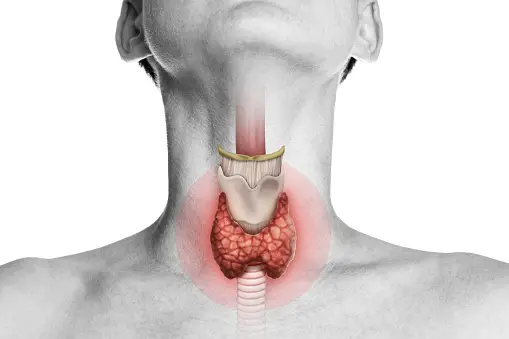Heart pain, also known as angina, can be a distressing and alarming symptom. Understanding the underlying causes of heart pain is crucial for several reasons. Firstly, it allows individuals to distinguish between harmless conditions and potentially life-threatening situations, such as a heart attack. Prompt recognition and appropriate action can be lifesaving in such cases.
Secondly, identifying the causes of heart pain helps healthcare professionals in making accurate diagnoses and devise effective treatment plans. By understanding the root causes, medical practitioners can provide targeted interventions, improving patient outcomes and reducing the risk of complications.
Lastly, knowledge about the causes of heart pain empowers individuals to make informed decisions about their lifestyle, such as adopting heart-healthy habits and seeking appropriate medical care.
The Potential Benefits of Using Home Remedies for Heart Pain

While seeking medical attention is crucial for diagnosing and treating heart-related conditions, certain home remedies can complement professional care and provide relief for heart pain. These remedies can offer several benefits, including:
1. Immediate Relief: Home remedies can provide quick relief from mild to moderate heart pain, helping individuals manage their symptoms while waiting for medical assistance or during non-emergency situations.
2. Accessibility: Home remedies are often readily available and affordable, making them accessible to a wide range of individuals. This can be particularly beneficial for those who may have limited access to healthcare resources or face financial constraints.
3. Non-Invasive: Many home remedies for heart pain involve natural ingredients, such as herbs, spices, or common household items. They are generally non-invasive and have a low risk of adverse effects compared to pharmaceutical interventions.
4. Complementary Approach: Home remedies can be used alongside prescribed medications and professional treatment plans, providing a complementary approach to managing heart pain. They can enhance overall well-being and support the effectiveness of conventional therapies.
5. Lifestyle Modification: Some home remedies focus on lifestyle changes, such as dietary modifications, regular exercise, stress management, and smoking cessation. By adopting these changes, individuals can reduce the risk factors associated with heart pain and improve their cardiovascular health in the long term.

Causes of Heart Pain
- Cardiac vs. Non-Cardiac Causes
Heart pain can have both cardiac and non-cardiac causes. Cardiac causes are related to the heart and its blood vessels, while non-cardiac causes originate from other organs or systems in the body. Distinguishing between these causes is essential for appropriate diagnosis and treatment.
- Common Cardiac Causes
1. Coronary Artery Disease (CAD): This is the most common cardiac cause of heart pain.
2. Heart Attack: A heart attack, also called myocardial infarction, occurs when there is a complete blockage of a coronary artery, cutting off blood supply to a portion of the heart muscle. This leads to severe chest pain, often described as crushing or squeezing, and requires immediate medical attention.
3. Angina: Angina is a type of chest pain or discomfort that occurs when the heart muscle does not receive enough blood and oxygen. It is often triggered by physical exertion or emotional stress and is relieved by rest or medications. Stable angina follows a predictable pattern, while unstable angina is more severe and unpredictable, requiring prompt medical attention.

4. Arrhythmias: Abnormal heart rhythms, such as atrial fibrillation or ventricular tachycardia, can cause heart pain. These irregular rhythms disrupt the heart’s normal electrical activity, leading to symptoms such as palpitations, rapid heartbeat, and chest discomfort.
- Common Non-Cardiac Causes
1. Musculoskeletal Issues: Conditions affecting the muscles, ribs, or joints in the chest can cause pain that may be mistaken for heart-related pain. Examples include costochondritis (inflammation of the cartilage connecting the ribs to the breastbone) or muscle strains.
2. Gastrointestinal Problems: Digestive issues like gastroesophageal reflux disease (GERD), peptic ulcers, or gallbladder disease can cause symptoms that mimic heart pain. Acid reflux or irritation of the esophagus can produce a burning sensation in the chest, often referred to as heartburn.
3. Anxiety and Stress: Emotional factors such as anxiety, panic attacks, or high levels of stress can manifest as chest pain. These non-cardiac causes may be associated with rapid breathing, muscle tension, and hyperventilation, leading to discomfort or a feeling of tightness in the chest.
Recommended: 7 Effective Ways to Prevent Thyroid Disease Problems
Home Remedies for Heart Pain
- Precautions and Considerations Before Trying Home Remedies
Before trying any home remedies for heart pain, it is important to consider the following precautions:
1. Consultation with a Healthcare Professional: It is essential to consult with a healthcare professional, especially if you are experiencing severe or persistent heart pain. They can evaluate your symptoms, provide an accurate diagnosis, and guide you on the appropriate course of action.
2. Complementary Approach: Home remedies should be viewed as complementary to professional medical care, not as a substitute. They can help manage mild symptoms and support overall heart health but should not replace prescribed medications or treatments.
3. Individual Variations: Each person’s condition and response to home remedies may vary. It is important to listen to your body, observe any changes in symptoms, and adjust your approach accordingly.
- Lifestyle Changes to Prevent Heart Pain

Adopting certain lifestyle changes can significantly reduce the risk of heart pain and improve overall cardiovascular health. Consider the following:
Regular Exercise: Engage in regular physical activity, such as aerobic exercises, strength training, or moderate-intensity activities like brisk walking. Exercise helps strengthen the heart, improve circulation, and manage weight.
Stress Management Techniques: Practice stress management techniques such as deep breathing exercises, meditation, or engaging in hobbies and activities that bring joy and relaxation. Chronic stress can contribute to heart problems, so finding healthy ways to manage stress is important.
- Herbal Remedies and Supplements That May Help
While scientific evidence for the efficacy of herbal remedies and supplements in treating heart pain is limited, some individuals find them beneficial. It is essential to discuss their use with a healthcare professional, especially if you are taking any medications. Some examples include:
1. Garlic: Garlic has been traditionally used for its potential cardiovascular benefits. It may help lower blood pressure and cholesterol levels, which are risk factors for heart pain. However, consult with a healthcare professional before using garlic supplements.

2. Hawthorn: Hawthorn is an herb that has been used in traditional medicine to support heart health. It may help improve blood flow to the heart and reduce symptoms of angina. As with any herbal remedy, consult with a healthcare professional before using hawthorn.
3. Coenzyme Q10: Coenzyme Q10 is a natural compound involved in energy production in cells. It has antioxidant properties and may help support heart health. Consult with a healthcare professional before considering Coenzyme Q10 supplementation.
- Relaxation Techniques and Alternative Therapies
Relaxation techniques and alternative therapies can help promote overall well-being and alleviate stress, which may indirectly contribute to heart pain. Some examples include:
Yoga or Tai Chi: Engage in gentle exercises such as yoga or Tai Chi, which incorporate movement, deep breathing, and meditation. These practices can help reduce stress, improve flexibility, and promote overall well-being.
Acupuncture or Acupressure: Acupuncture or acupressure techniques may help alleviate stress and promote relaxation. These therapies involve applying pressure or inserting thin needles into specific points on the body.
Conclusion Understanding the causes of heart pain is important for accurate diagnosis and appropriate treatment. Home remedies can provide complementary relief and support for mild heart pain, but they should not replace medical advice or emergency care. Lifestyle changes, such as a healthy diet, regular exercise, and stress management, can help prevent heart pain.
Herbal remedies, supplements, relaxation techniques, and alternative therapies may offer additional benefits, but consultation with a healthcare professional is necessary. Seeking immediate medical attention is crucial for severe or concerning symptoms.
Follow-up care, including diagnostic tests, medications, and lifestyle modifications, is important for long-term management. Overall, a comprehensive approach that combines medical guidance and self-care measures is key to effectively addressing heart pain.








